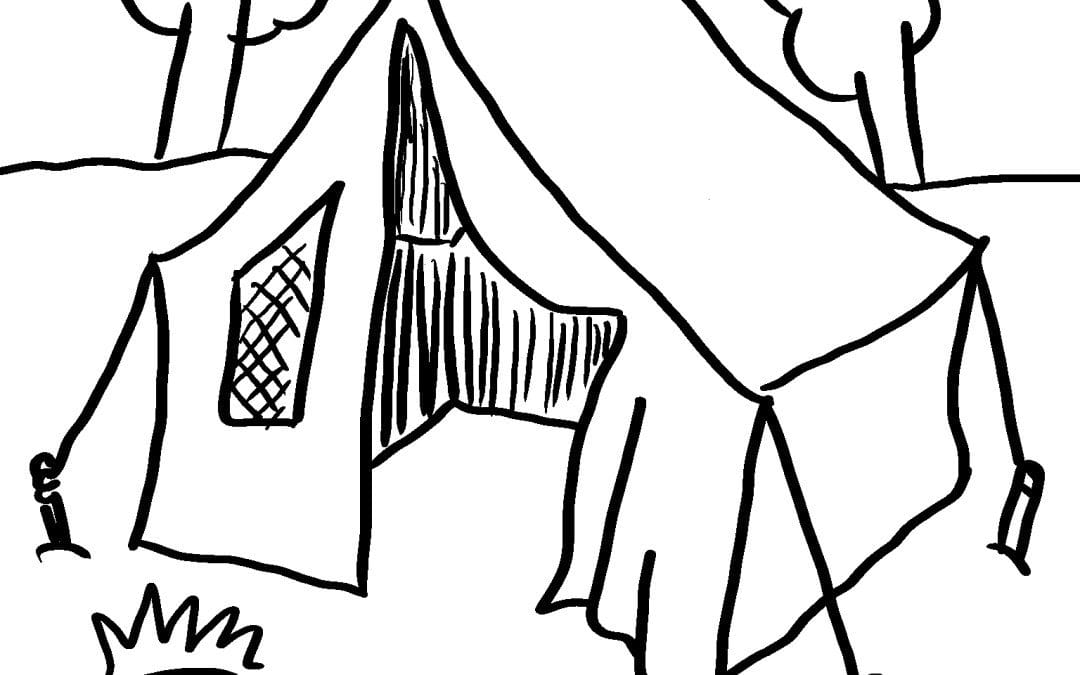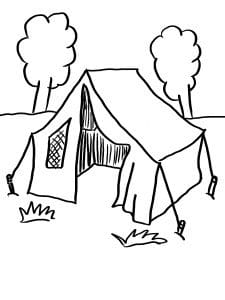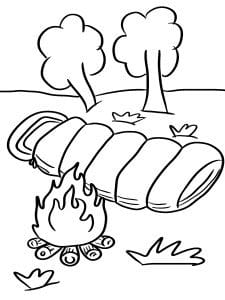How To Choose A Lakeside Camping Site
(Actual Picture from the Lake Fun Adult Coloring Book)
Lakeside camping can bring its challenges when choosing a campsite. You have to consider water, insects, wild animals and more when finding your home away from home. But, all of these challenges can be overcome if prepared for them.
Tent Footprint
Before you throw down your tent and start setting it up, it’s a good idea to look around for signs of trouble. First find a spot that is flat. You need an area that is going to drain well and not collect water if it rains. You will also want to look for signs where water may have eroded the ground during a heavy rain. You don’t want your tent to be in the middle of that.
Once you find your spot, look up. Are there dead tree limbs that might come down on you at night if the wind suddenly picks up? If so, find another spot.
If your tent is on a slight incline, make sure you sleep with your head uphill. You don’t want the blood rushing to your brain while you’re sleeping.
Lake Fun’s Top Tents for Lake Camping
Flooding and Waterlines
Now that you have a spot for the tent let’s overcome another lakeside camping challenge. What you want to look for are signs of flooding. You may have to look several hundred feet away to find the signs of flooding. I have even seen debris up in the trees at some locations.
You are looking for washouts, debris or water markers. The point here is you want to make sure your tent is at a higher elevation then these signs of flooding. Also, keep in mind that water will collect over a large area of land before draining into a lake. You just want to be sure your tent isn’t in the path of the water.
Lakeside Camping and 6 W’s
- Wind- Camping next to a lake removes a natural wind barrier. Face your tent so the narrow side will face the water. Look at the surrounding trees and see if they have a slight lean away from the water. This lean is a good indication of strong wind direction. You will want to default to the trees if the lean is in a different direction.
- Water- Nearby fresh water is a must. You will want to look for mosquito breeding grounds like standing water. Again, look for hazards like flooding and drainage areas.
- Weather- Have some idea of what normal weather is for the area. You should check for developing conditions before and during your camping trip.
- Wild Animals- Wild animals use the lake for their water source. Look for signs and try to avoid the area if possible. Being next to the water, you will become a prime target for a food thief.
- Wood- A sweet side to lakeside camping, there is usually plenty of firewood around for the campfire.
- Willingness- Don’t camp anywhere if you don’t have the property owner’s permission to be there.
Lake Fun Suggested Camping Reading
Lakeside camping can be the best place you will ever pitch a tent. If you look for the signs and prepare yourself. Now go ahead and jump in the water, ‘cause it feels fine!
(Actual Pic From the Lake Fun Adult Coloring Book)
www.GolfLic.com www.DandridgePhotoTours.com www.1783.us www.Jobe.ws www.ResCheck.info www.DouglasLakeFun.com www.WinkySugar.com



